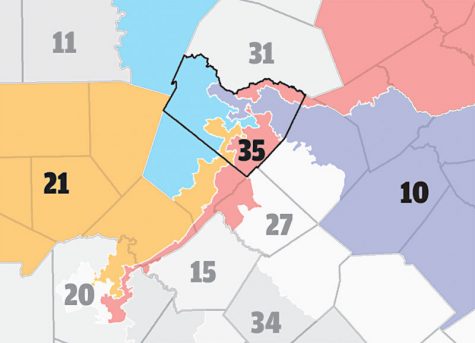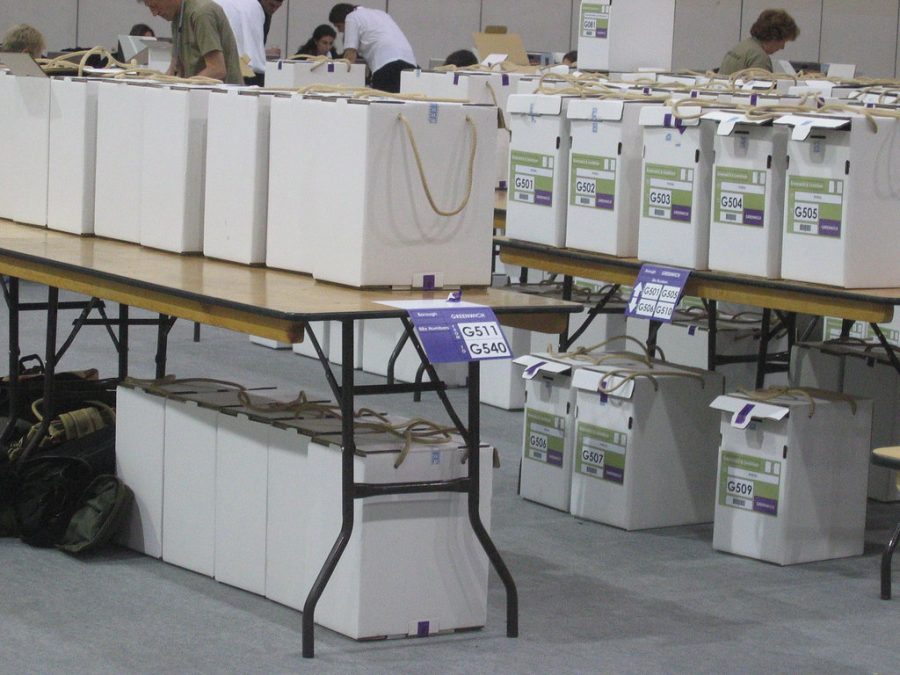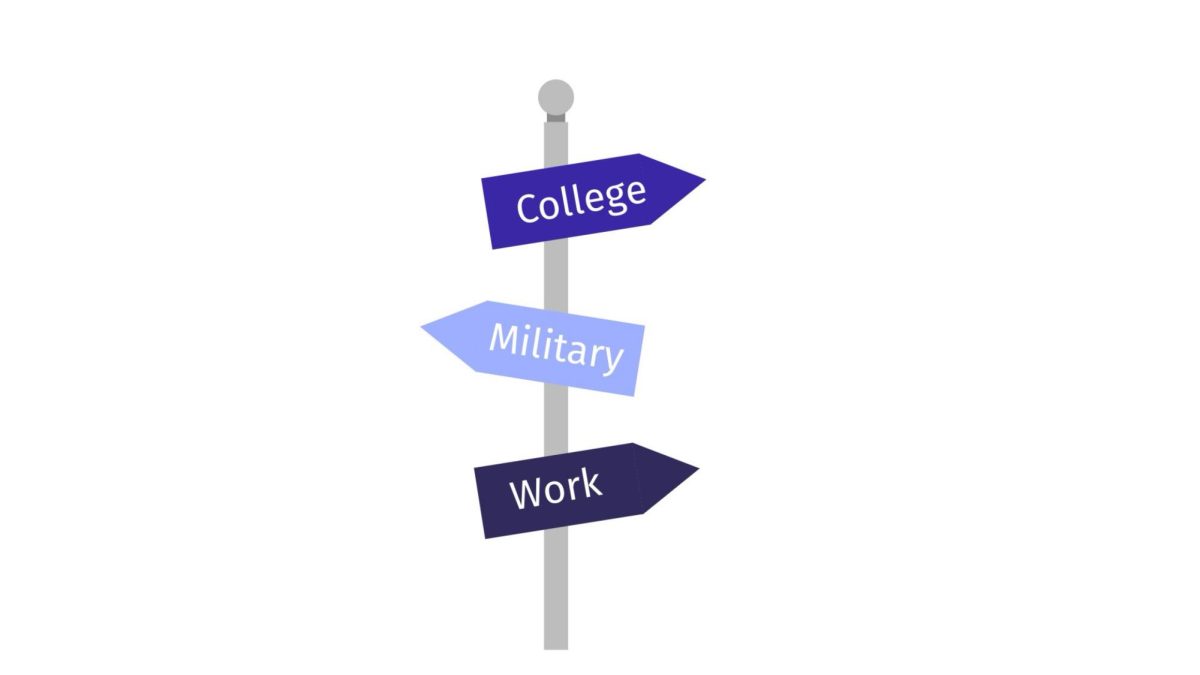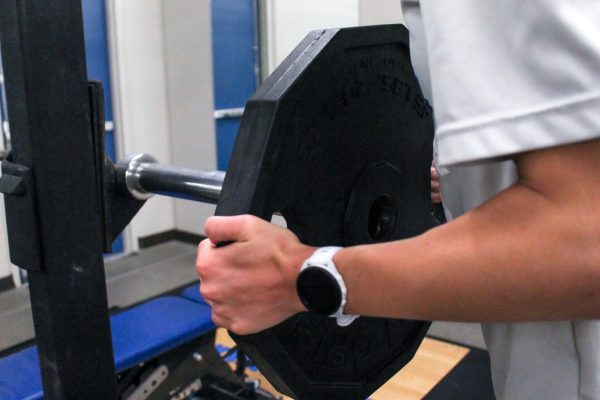Opinion: How Democracy Gets Subverted
As we reach the end of the election year, man questions are brought to the publics attention about voter fraud and other mistakes in the election.
November 19, 2020
There’s an old saying that has been repeated by numerous presidents and other heads of state on both sides of the aisle. The saying goes, “Democracy is our greatest export.” Meaning that in the eyes of these politicians, the most valuable action we’ve taken is setting up democratic elections in countries that we have occupied.
What is interesting about these democracies we’ve set up in other countries is that they’re one-to-one democracies, where one person equals one ballot during elections. The funny thing is that isn’t what we do here in the States. Here in the U.S., we have what’s called a representative democracy, where we elect our region’s congresspeople to make sure our interests are heard at the federal level and based on the number of representatives we have as a state, that’s how many electoral votes we get.
So, even though our government believes that one-to-one democracies are good, why do they continue to run an electoral college system domestically? Well, in the spirit of the countless lawsuits our President is filing to try to prove the election was rigged, I’m going to explore the verifiable ways votes are systematically left out or devalued for the sake of accumulating and preserving power.
Gerrymandering
Gerrymandering is a bit of a difficult act to explain, but it’s a very important one to understand. States are in charge of drawing up and determining the territories within their state to get represented by someone in Congress. Theoretically, these territories should include people with similar interests so that they can make sure their representative is meeting their needs. For example, if you lived in a rural area, in a mostly urban state, you would want the territory of representation to contain the rest of the rural area so you can vote for a candidate who is going to fight to make sure the price of your harvest isn’t going to go down, instead of maybe focusing on something like public transportation, which does not help you at all.
Unfortunately, the problem is that most states are completely dominated by a single party, so the lines aren’t drawn to have proper representation. They’re drawn so that this dominating party can send as many representatives to the capital as humanly possible.
If you still don’t exactly understand what this means, imagine if you were sitting at a table with 4 of your friends, and your teacher starts spitballing ideas for what kind of party you’re going to have as a class for an end of the year celebration. You and everyone at your table are adamant you want a pizza party, but the rest of the class wants an ice cream party. Every table gets one vote, and the teacher wants every table to agree with each other, otherwise, she’ll feel obligated to get pizza as well. She doesn’t want to spend that kind of money, so instead of letting the vote go four for ice cream, one for pizza, she decides to split your table up and disperse them among the ice cream loving tables, where they are now outnumbered. Ending in now a five ice cream, zero pizza consensus.
Theoretically, the victor of each congressional race should be winning with 70+% of the vote, because people who live a similar lifestyle in a similar area tend to have similar opinions. However, due to the cutting and systematic rebuilding of voter districts you’ll regularly see races in the 45-55% range because parties are OK with nail-biters if it means they get more seats in the house.
The most egregious form of this is in Austin, Texas which is an overwhelmingly liberal bastion inside of a largely conservative state. If districts were being drawn up as intended, the district should probably contain the town of Austin and maybe nearby cities with similar beliefs. What has actually happened is the government of Texas has split Austin into 5 different voting regions, that extend into more conservative rural areas, rendering their votes worthless.

We cannot call ourselves a representative democracy if the districts in need of representation are drawn in such a way that they’ll never agree with what they even want out of their politicians.
Denying Puerto Rico Statehood
Puerto Rico is like the United States’ illegitimate child; they’re not invited to any family get-togethers, we don’t want to hear their opinions or their problems, but we do pay for them to exist. And in return, they use our currency and we get their tax money and the ability to have military bases on the island country. However, they don’t get any votes in the presidential election nor representatives for our congress, yet our federal government has ultimate authority over them.
So why aren’t they allowed to vote? Well politically, their last three governors have been part of the liberal New Progressive Party, so unless conservative republicans lose major amounts of power, you can expect Puerto Rico to not have statehood any time soon.
Puerto Rico has major problems, and the United States has major resources they could use to help them besides just sending them literal boatloads of money for their corrupt government to roll around in. We need to take them under our wing, let them be a state and help them mend the open wound still left by the hurricane and the corruption that they’ve been trying to chase out.
By denying them statehood, we are denying them the domestic rights every state gets to decide their own laws and rules. By holding them down as a territory, we deny them a seat at the world stage and control over their own trade.
Denying Washington, D.C. Statehood
Now in Washington D.C.’s case, it’s much less dire but far pettier. See, Washington, D.C. technically isn’t a state, and I understand that because ultimately it is the size of a city. Being that they are a district, however, they do get to have a congressperson. However, due to a mind-boggling legal loophole, Congresswoman for D.C. Eleanor Holmes Norton doesn’t get to vote on any legislation. She literally only gets to sit and read bills, talk about them with her colleagues, maybe draft a few bills herself, but she can never ever vote on one.
It’s like the United States decided to give D.C. a mouth but not a voice. Why is it like this you may ask? Well any conservative will tell you it’s because it’s not a state, which again I agree with. However, there is still a huge population of people there who deserve the ability to elect people who are actually going to be given the power to represent them.
Sure, you can see from one side of D.C. to the other, but they still have a population higher than Wyoming and Vermont. So it seems to me that the real reason they don’t have statehood is that we have another case of an electorate mostly composed of liberals being denied a real seat at the capital because the citizenry of D.C. and their elected representative tend to hold progressive viewpoints, so as long as conservatives hold any power in the federal government they shouldn’t expect to become a state. That’s not just a knock on republicans, I’m sure if Washington D.C. was a primarily conservative region democrats would do the same thing. Either way, the right thing to do is offer these citizens of America the legislative representation being in this country should promise.
Electoral College
I’ve heard a lot of talk from people who say we should abolish the electoral college, and while I empathize with that sentiment, it is important to recognize that the electoral college probably won’t be going anywhere, at least in our lifetime. It is another one of those situations where giving citizens a one-to-one democracy might be the right thing to do, it simply isn’t in republicans’ best interest to do so. The republican candidate has only won the popular vote in one of the last eight elections, so if we saw a shift to a one-to-one democracy, there is a good chance we might not see a conservative president in a very long time, and who knows what the consequences of that might be.
Even though the electoral college probably isn’t going anywhere, that doesn’t mean it can’t be reformed. In fact, it absolutely should be. Even though states like California may seem to have more sway over the election than states like Wyoming, the truth of the matter is that the amount of electoral votes each state has is not directly proportional to its population.
When you take the number of electoral college votes every state gets then divide it by the number of people in that state, what you find is pretty interesting. The weight of a ballot cast in Wyoming is over 3 times that of a state like California, which is why we’ve been able to see such disparages between the results of the popular vote and that of the electoral college in the last few elections.
While I understand the concerns about voter fraud- nobody wants to see democracy tampered with. Democracy is the most important ingredient to having a free society. When we get to choose the people to represent us, whether on a national or local level, we can ensure that our interests are being represented, and our voices are being heard. However, we need to keep in perspective that a lot of the people who are accusing polling places of throwing away ballots have been throwing a good deal of their constituents’ ballots away for years, and smothering the voices begging for someone to listen.








